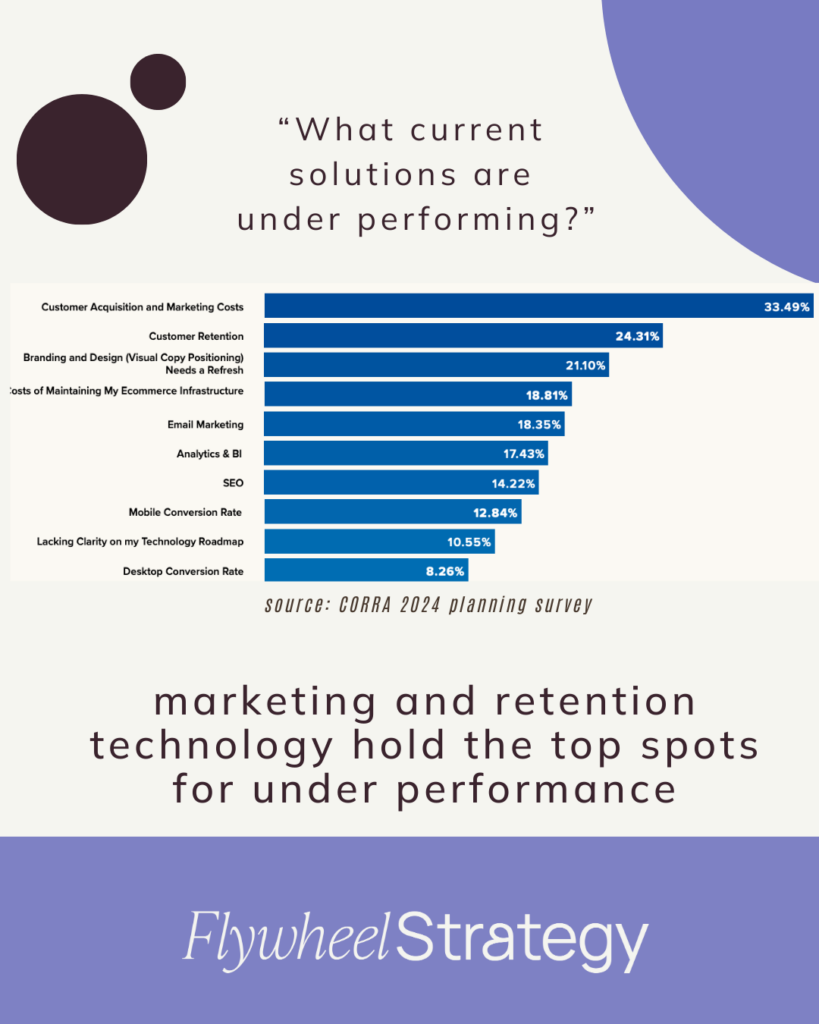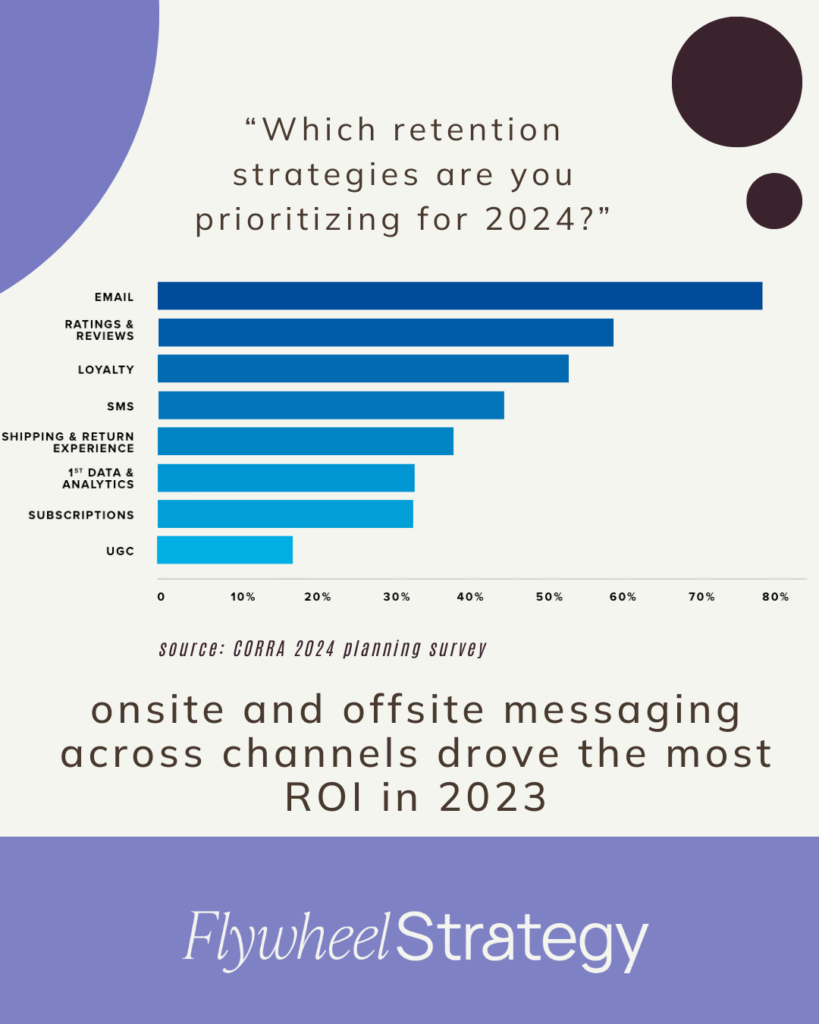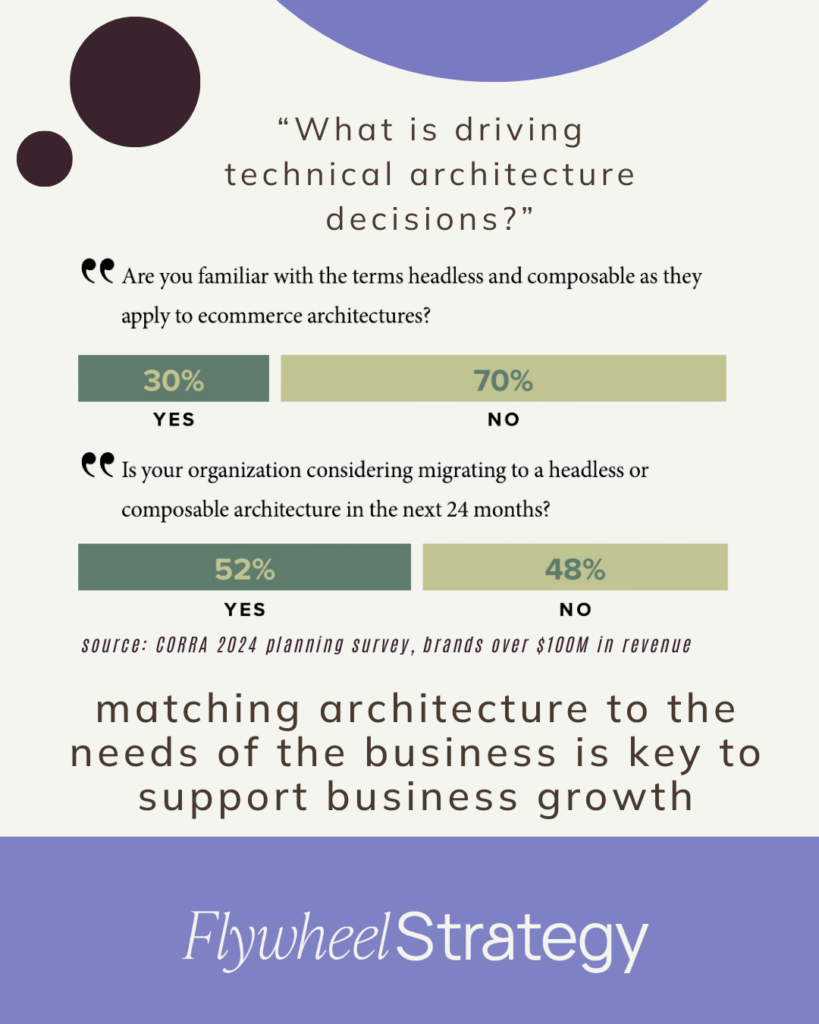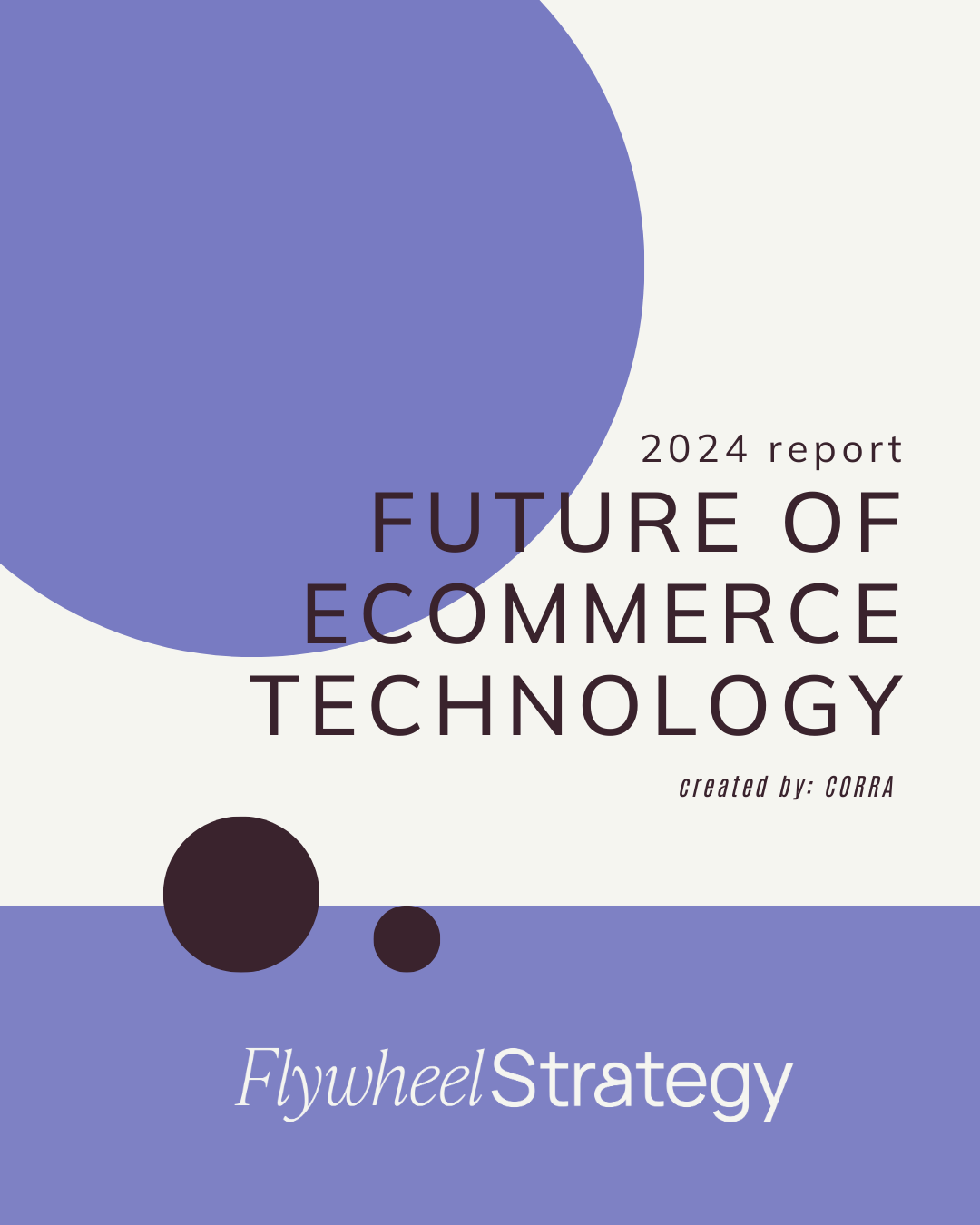Position your ecommerce tech stack to drive growth in 2024
WRITTEN BY: KATE MACCABE
Evaluating how ecommerce technology supports and drives growth, is top of mind for retailers in 2024.
Last month, Corra shared a comprehensive survey of 368 professionals from various fields, including ecommerce, IT and marketing. They gathered over 13,000 data points from both B2C and B2B retailers on their ecommerce investment plans, crafting The Future of Ecommerce Technology in 2024.
Here’s our round up and summary of areas to focus on to optimize your business’ P&L and leverage ecommerce technology to accelerate growth this year.
Evaluate and address marketing technologies that are underperforming
In The Future of Ecommerce Technology report shared by Corra, four of the five lowest performers in the tech landscape for retailers are in the marketing arena:
- Customer Acquisition and Marketing Costs
- Customer Retention
- Branding and Design
- Email Marketing
From the iOS 14.5 changes introduced April 2021 to the Gmail and Yahoo updates that went live only 2 weeks ago, the marketing landscape has been especially turbulent the past 3 years. With dramatic changes in privacy, ad platforms, and technology infrastructure, cost effectiveness for marketing spend is in uncharted territory. In 2024, evaluating where to consolidate, optimize, reduce and expand is key as businesses course correct on the marketing efficiency losses on the board.

Prioritize retention strategies to gain momentum in marketing efficiencies
2024 is the year of right-sizing retention channels to unlock low-cost opportunities to drive high-impact gains. Think of email and SMS as complementary communication touchpoints. This generates curated, personalized experiences for subscribers – while optimizing send costs for the business. Move from out-of-the-box implementations for Loyalty and reviews to curated experiences that highlight why your business stands above the rest. Tap into the recent gains in low-effort implementations. Bring subscriptions to your ecommerce experience (take a peak at Yotpo’s subscription offering), and move from the basics of UGC to AI-driven UGC management (our favorite is Archive).

Make space for the long-game, by designing a technical architecture that grows with your business
Decisions like whether to go headless with your ecommerce tech stack are tempting to punt to next quarter, or even next year. Delaying long-term decisions for the foundation carrying your business are important to make space for now. Tech-speak can be challenging to follow and often seems unrelated to the direct success of your business. Don’t let that hold you back. Your tech stack determines not only software expenses for your business, but the capabilities available to bring your digital experience to life, and the operating rhythms for your teams. Here are three steps to designing a technical architecture that works for you, not against you:
- Gain fluency in the technical concepts that anchor your business
- Translate the needs of your business to the platforms and systems that support them
- Partner with product and technology leaders to identify short, mid and long term goals to update technology as the business evolves


BE THE FIRST TO COMMENT: